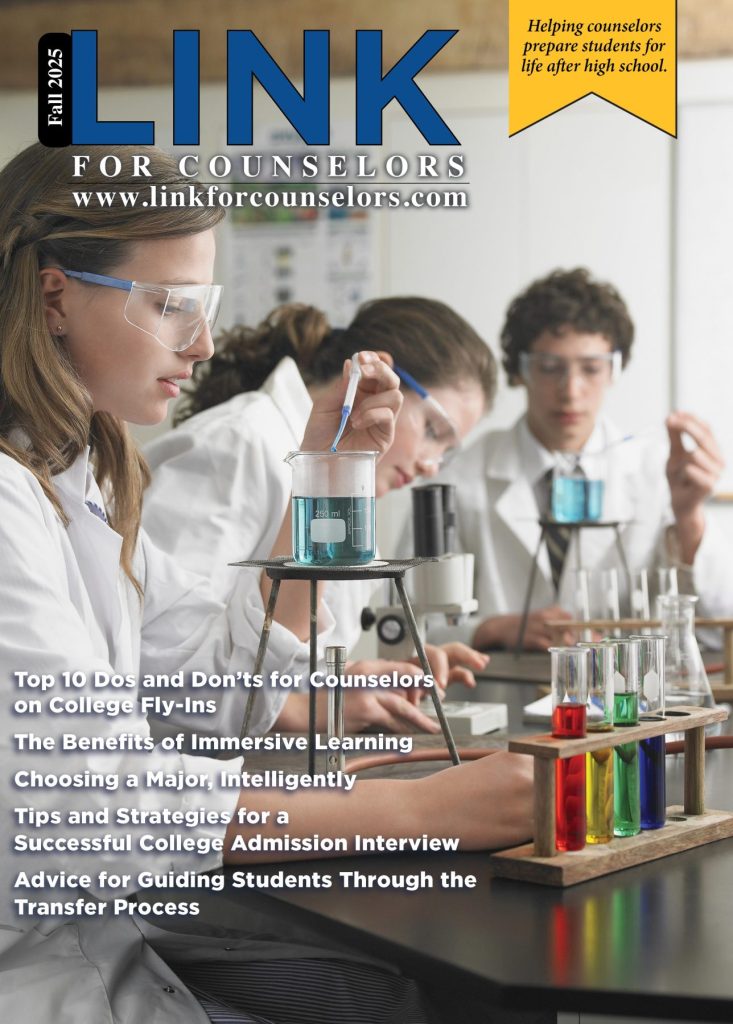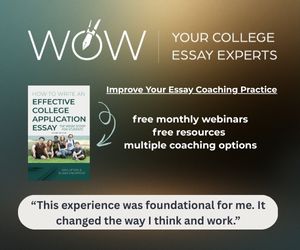Thesaurus words in college essays … how you can help!
Have you ever had a student turn in an essay draft with a few words that seem way too big?
Are the words different from the words they’ve used in meetings, in writing exercises, or on a quick chat on the phone?
I think we all know the culprit: the thesaurus!
Time and again, we advise our students to ditch the thesaurus: they don’t need it; their authentic voice matters; they should use the words they use every day.
It’s on our Do’s and Don’ts list (as a Don’t) in our book for students! (If you don’t have a copy of our book for students, you can download a free one here). And you can share it with your students!
But to be honest, students don’t always listen. You know why? Because they don’t always trust themselves. Our job, and yours, is to encourage them to trust themselves.
If an applicant uses a thesaurus to find words, rather than trust the words they know and use every day, the essay will not sound like them. In the process of writing, they might even use a few big words incorrectly, and that will never impress an admissions officer.
Either way, it’s problematic. For you. For us. For our students.
We have a few tricks up our sleeves to help reduce the number of awkward/thesaurus/misused words in college essays.
Here’s our best one: We make short and sweet notes in the margin, asking them politely and respectfully to explain what they wrote in the same words they would use to explain it to a friend.
We don’t write all over the draft; that can be overwhelming and fuel more stress.
Here’s an example:
A student used the phrase “the adrenaline was seething through my body” in a very long and winding sentence in an early draft of a personal statement; it didn’t sound like the student who wrote it. In the margin, I asked how he would describe this feeling to a friend. He responded, “I felt a huge rush of adrenaline, and that was incredibly intense.”
Much better. It sounded like the student who wrote it. He liked it, too.
At Wow, we put the student in charge, and make it okay for them to use the words they know, the words they like, the words that make them sound like themselves.
We allow them to make choices, and we make suggestions. But if they don’t take our advice, we leave it alone.
And guess what? Our students write beautiful essays that they are proud of – even with occasional awkward sentences or big words.
ABOUT THE AUTHOR
Kim Lifton is a MACAC Board Member and President and Co-founder of Wow Writing Workshop, which teaches students and educational professionals a simple, step-by-step process for writing effective college essays, so students can stand out and tell their stories. Kim leads a team of writers and teachers who understand the writing process inside and out. Since 2009, Wow has been leading the college admissions industry with our unique approach to communicating messages effectively through application essays, including personal statements, activity and short answer essays and supplements. We teach students – and we train professionals.
Coming Up
We cover a new topic in our Pro Chats each month – Wednesdays at 1:00 p.m. Eastern! Click here to register for our free sessions!
December 12/08/21 Reflection: 2021 Wrap-up
January 01/12/22 A Taste of the College Essay Experience (a special 60-minute webinar)
Our free gift to you!
And, if you’d like a free electronic copy of our book for counselors, How to Write an Effective College Application Essay, the Inside Scoop for Counselors, download it here.













